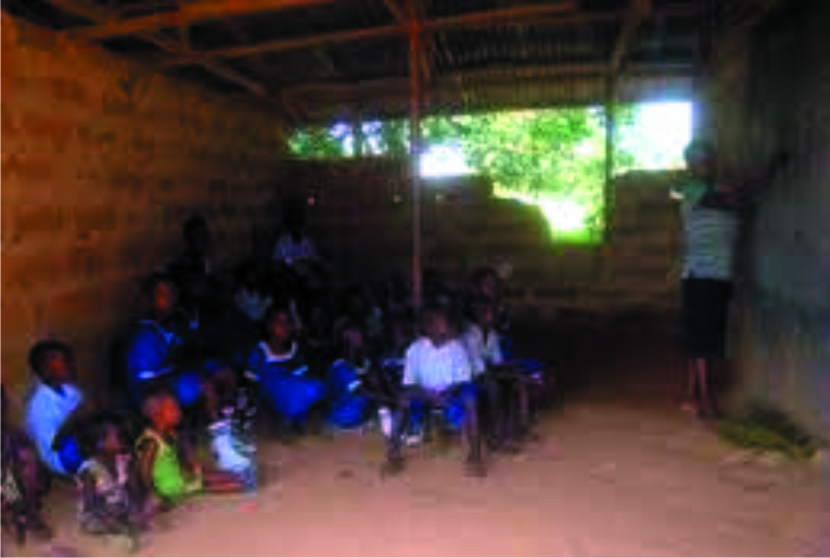Editorial
Task Before Illegal Schools Committee

Apparently implementing the report and recommendations of the Professor Ozo-Mekuri Ndimele-led Committee on Accreditation and Approval of Private Schools in Rivers State, the state government took, penultimate week, a step further by inaugurating a committee to clamp down on all illegal and unapproved private primary and secondary schools still operating in the state without requisite approval by the state government.
Deeply disturbed by the proliferation of substandard schools resulting to low education standards in the education sector, the State Executive Council resolved that in order to consolidate the extant laws on education as passed by the state House of Assembly and assented to by the Governor, the need to re-jig the education sector had become inevitable and imperative.
Addressing newsmen after a State Executive Council meeting, the State Commissioner for Information and Communications, Pastor Paulinus Nsirim said the Council had approved the amendment of the Education Private Schools Law (1999) as amended which provides for stiffer penalties and sanctions to prevent breach of government’s policies as contained in the extant laws.
“Government took this decision to check the present situation of indiscriminate proliferation of private schools without due compliance with basic requirements with respect to standards; curriculum, content and facilities”, he said.
“The overall goal is to ensure the development of quality education in line with the Rivers NEW Vision of the present administration”.
The Tide agrees no less with government’s proactive approach to sanitise the education sector that has been bastardised by proprietors whose penchant for financial gains knows no bounds. We endorse any measure adopted against illegal and unapproved schools in the state.
It is so disheartening to observe schools operating in make-shift and at times residential apartments with little or no facilities to show for it. Often, such unapproved institutions have just between three to five academic and non-academic staff.
For any educational institution to operate in the state, such a school should and must by law meet certain basic criteria such as availability of science laboratory, befitting library, recreational facilities, qualified manpower, and above all, conducive environment for effective learning and teaching in accordance with the extant laws.
Sadly, most private schools in the state fall far short of this and thus operate in sub-human environment without consideration for the concomitant health hazards such scenario poses to their pupils, wards and staff.
Unfortunately and quite frankly, most private schools employ unqualified teaching staff without regard to the national minimum teaching qualification of National Certificate of Education (NCE). Some of them engage secondary school drop-outs who know little or nothing about the teaching profession. Such staff barely read or write effectively, not to talk of imparting knowledge.
It is against this backdrop that we implore the committee to take its assignment seriously as the fate of our children lies in its hands. No effort should be spared in re-positioning the education sector especially at the foundation level.
The committee members must not compromise standards for their selfish and personnal aggrandisement.
Education remains the bedrock of societal development and any society worth its salt goes the extra mile to ensure that its citizens get the best to address the myriad problems plaguing such a society.
We, indeed, commend the State Governor, Chief Nyeson Wike, for the bold initiative in the education sector and implore all critical stakeholders in that sector to join hands in re-positioning the sector.
That is why we think that the task ahead of the committee is quite enormous. The body must, like Ceasar’s wife be above board by ensuring that all unapproved and illegal schools in the state are shut down forthwith.
A situation where private school operators short-change unsuspecting members of the public must not be allowed to be the norm any longer. The committee should therefore swing into action by ensuring that no stone is left unturned in fishing out all such schools.
On its part, government should as a matter of delibrate policy continue to upgrade and expand public schools to accommodate the pupils and students that will be displaced as a result of the shut down.
Editorial
Resolve Rumuwoji Market Issues, Others

Editorial
As NDG Ends Season 2

Editorial
Beginning A New Dawn At RSNC

-

 News5 days ago
News5 days agoAmend Constitution To Accommodate State Police, Tinubu Tells Senators
-

 Politics5 days ago
Politics5 days agoSenate Urges Tinubu To Sack CAC Boss
-
Business5 days ago
Crisis Response: EU-project Delivers New Vet. Clinic To Katsina Govt.
-
Business5 days ago
President Tinubu Approves Extension Ban On Raw Shea Nut Export
-

 News5 days ago
News5 days agoDisu Takes Over As New IGP …Declares Total War On Corruption, Impunity
-
Business5 days ago
President Tinubu Extends Raw Shea Nuts Export Ban To 2027
-
Business5 days ago
Fidelity Bank To Empower Women With Sustainable Entrepreneurship Skills, HAP2.0
-
Sports5 days ago
NDG: Rivers Coach Appeal To NDDC In Talent Discovery

